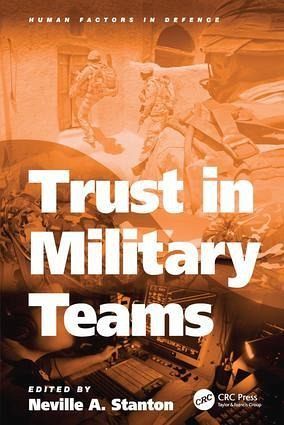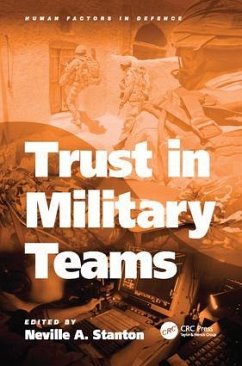
Trust in Military Teams
Versandkostenfrei!
Versandfertig in 1-2 Wochen
177,99 €
inkl. MwSt.

PAYBACK Punkte
89 °P sammeln!
Written under the auspices of the The Transfer Cooperation Programme, this book reports on contemporary trends in the defence research community on trust in teams, including inter- and intra-team trust, multiagency trust and coalition trust. It also considers trust in information and automation, taking a systems view of humans as agents in a multi-agent, socio-technical, community. The different types of trust are usually found to share many of the same emotive, behavioural, cognitive and social constructs, but differ in the degree of importance associated with each of them.












